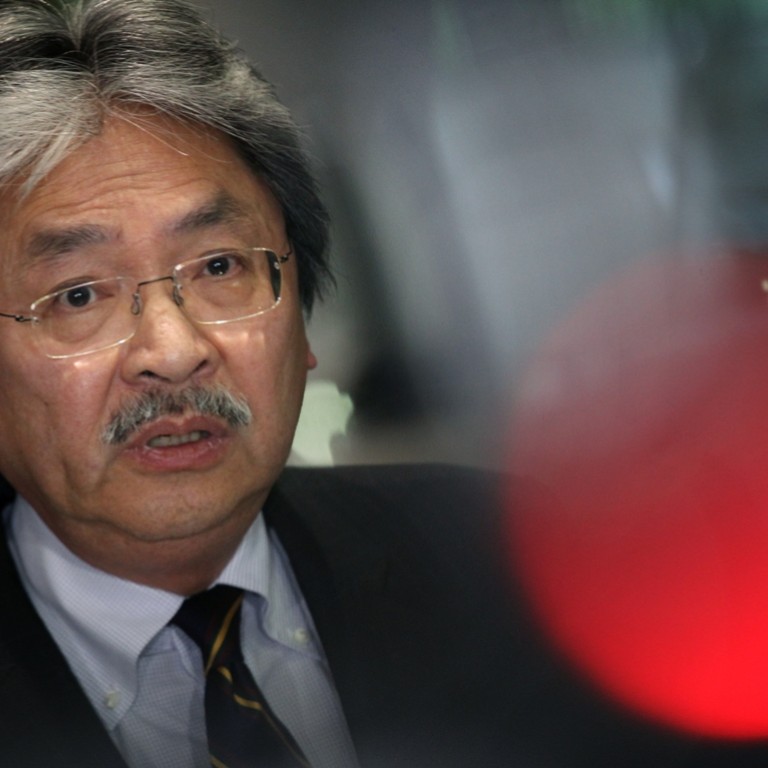
Financial Secretary John Tsang eyes law reform to attract capital to Hong Kong
Legal changes will lure investment funds and foreign firms to city, predicts financial secretary
Financial Secretary John Tsang Chun-wah yesterday said Hong Kong was amending its laws to become a more attractive financial hub, which analysts said would enable the city to compete against rivals such as Singapore.
The Hong Kong government has set up a taskforce to develop proposals to attract more multinationals and mainland firms to set up corporate treasury centres in the city, Tsang said at the Hong Kong Institute of Bankers' annual conference. A company's corporate treasury centre handles cash, foreign exchange transactions, loan transactions and interest rate management.
Hong Kong is developing regulations to give greater flexibility to investment funds and lure them to the city, Tsang said. Hong Kong is also preparing laws to extend the profits tax exemption to offshore private equity funds and waive the stamp duty for exchange-traded funds. The Hong Kong government has amended its trust law to promote the territory as a trust domicile, Tsang said.
"Settlers are now able to establish perpetual trusts in Hong Kong, giving us a competitive edge over other major common law jurisdictions," Tsang declared.
Trusts are widely used as succession planning tools for wealthy individuals, said Kevin Lee, a Hong Kong-based partner at law firm Zhong Lun.
"Hong Kong sees itself as one of the two major private wealth centres in Asia-Pacific besides Singapore. If Hong Kong does not modernise its trust services, it will lose in competitiveness to Singapore," said Lee.
Other analysts welcomed the moves announced by Tsang.
"Singapore has had corporate treasury centres for a long time. Hong Kong has been lagging behind in giving tax incentives for multinationals to set up corporate treasury centres. The advantage if they set up treasury centres in Hong Kong is they will hire people here," said Basil Hwang, a partner at Zhong Lun.
Patrick Yip, a national financial services tax leader at Deloitte Touche Tohmatsu, commented: "If Hong Kong provides a friendly environment to such centres, it would mean more 'mini banks' would be set up in Hong Kong, with more capital flowing through or accumulated in Hong Kong. This would further help burnish Hong Kong's reputation as a regional financial centre."
Tsang expressed the hope that Hong Kong will pass a law by 2016 to enable the automatic exchange of tax information under the Common Reporting Standard, which is adopted by 65 other jurisdictions including the mainland. Hong Kong's first automatic exchange of information under this standard is expected to begin by the end of 2018, Tsang added.
The Common Reporting Standard seeks to combat cross-border tax evasion.
It is crucial for Hong Kong to adopt the latest global standard on tax transparency, said Tracy Ho, tax managing partner for EY in Hong Kong and Macau.

